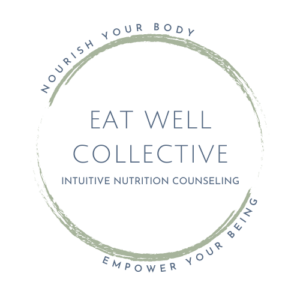
This blog post is part of a new monthly Nutrition Advice Column. Feel free to submit your questions to qu[email protected] or complete the form below.
Question: I have struggled with constipation for many years – what do I do?
Answer:
Warning: This blog post is about poop. If that makes you uncomfortable, you are not alone. Many clients preface their discussion about bowel movements with a ‘sorry, this is TMI, but…’ and I get it, for many people it feels embarrassing to talk about poop. But I am here to tell you that, as a dietitian, I talk about poop all day long.
Our poop tells us a lot about our health – it is important to pay attention.
Conversations about bowel movements do not make me squeamish. And yes, if you meet with me to talk about constipation, I will ask you a lot of detailed questions about poop. The more details, the better – this can tell us a lot about what is going on.
Back to your question…
First, let’s establish that you are struggling with constipation. A client once told me that she had diarrhea every morning and then by evening she was constipated. What felt like constipation to her was actually a more complicated manifestation of an underlying gut condition.
Constipation is defined as dry, hard stools and bowel movements less than 3 times per week.
A normal bowel movement is green or brown in color and looks like a 3 or 4 on the Bristol scale (Bristol Stool Form Scale) Yup, that link will take you to pictures of poop. Again, get used to looking at your poop. It is a sign of what is going on in your body. Constipation manifests as Type 1 or 2 on the Bristol scale.
The common answer to ‘what do I do about constipation?’ often has to do with fiber and water. That’s not wrong. But as you may know by now, I like to dive a little deeper.
Let’s pause for a moment to identify if there are any underlying reasons for your constipation.
Here are a few questions to ask yourself:
Are you undereating? Not eating enough causes constipation. Eating triggers movement in the intestines, which eventually prompts a bowel movement. Not eating enough prevents this normal intestinal movement and can leave you routinely constipated.
Are you eating sporadically? The gut is like a toddler – it LOVES consistency. Routine food intake = routine output (aka poop). Skipping meals or eating irregularly can cause constipation. One of the first things I do when working with clients who struggle with constipation is to assess for whether they are eating consistently. Inconsistent food intake is a common problem in our hectic society.
Do you have a history of trauma? Our nervous system impacts our gut. This can translate into digestion that speeds up or slows down. Unaddressed trauma manifests in the body in many ways. One of these ways can be constipation. Thanks trauma.
Did you have an illness or physical trauma that caused constipation and the problem has been ongoing? Surgery (especially surgery on the gut), medications, hospitalizations, giving birth, slow gut transit, and certain medical conditions such as hypothyroidism and pelvic floor disorders can all cause constipation. And sometimes constipation is ongoing because of a structural change in the gut, pelvic floor muscles, or a change in the gut microbiota.
Are you following the keto diet? This diet is known to cause constipation because it is high in fat and protein.
Are you taking iron or calcium supplements? These supplements commonly cause constipation.
So what is the solution – how can we address constipation?
If you answered yes to any of the above questions, then please consider taking the time to address the underlying problem. Talk to your doctor or a dietitian about the best place to get started. Just adding in more fiber and water is not likely to solve the problem.
Now that we have explored a few possible underlying issues, let’s talk a little about how classic nutrition advice can help with constipation. To be clear, you CAN try these things even if you are struggling with an issue mentioned above although just know these recommendations are not going to address the root cause.
Here are some basic principles we can think about when trying to establish regular bowel movements:
- Eat at the same time each day.
- Drink a hot beverage with breakfast to stimulate a bowel movement. Coffee, tea, hot water with lemon juice and honey are all helpful stimulants.
- Be sure to drink enough water/fluids. Your urine should routinely be pale yellow (not clear).
- Eat a varied diet with at least 25-35 grams of fiber per day. Fiber-rich foods include popcorn, fruits and vegetables, beans, and whole wheat breads, pastas and cereals to name just a few.
- Here are a few short articles with more details and food ideas about fiber: High-fiber foods: MedlinePlus Medical Encyclopedia AND Easy Ways to Boost Fiber in Your Daily Diet.
- Warning: If your body is not accustomed to fiber, it is important to SLOWLY increase this over time while also increasing water intake. Jumping head first into adding tons of fiber will set you up for lots of bloating, gas, and pain.
- Try sprinkling chia seeds into a meal at least once per day. Preferably the same meal each day. I have had a lot of success with clients when they eat chia seeds regularly.
- Examples: 1 teaspoon mixed with yogurt, oatmeal, cottage cheese, cereal or a liquid such as water or milk.
- Get regular physical activity. Movement helps promote consistent bowel movements.
- Give yourself plenty of time on the toilet. Rushing through trying to have a bowel movement is counter-productive. Take time in the morning after breakfast to sit on the toilet. After eating, your gut is triggered to move and this will help you have a bowel movement. If you regularly ignore these signals, this can also lead to constipation.
- Use a toilet stool to position your body properly. Not only do toilet stools help with ease of having a bowel movement, it is also more comfortable. There are plenty of great options out there, but here is an example just to give you an idea.
- Keep in mind – it is completely normal and fine to NOT have a bowel movement every day.
If you have tried basic recommendations for a period of time, but see no improvement, there is still plenty of help out there for you.
As I mentioned earlier, if you have had constipation for a long time, simply bumping up your food fiber intake and increasing water and movement is likely not going to do the trick.
When someone has routine constipation, it can be helpful to introduce fiber supplements and/or laxatives to get over the hurdle of prompting your gut to trigger a regular bowel movement. It does not mean you will need to take it for the rest of your life. Sometimes the gut needs to be reminded how to move waste along and to empty more regularly.
When the gut develops better habits, then sometimes we can cut back on the supplement and rely on the basic principles outlined above.
There are many supplement options and I won’t go into detail (otherwise we would be here for days). Just know that there are a wide variety of options available that act on the gut in different ways: some draw fluid into the stool, others stimulate gut movement, and some bulk up the stool.
Some fiber supplements are not recommended for certain health conditions. Some people find prebiotic, probiotic, and magnesium supplements or digestive bitters to be helpful.
The key is to take a supplement or food CONSISTENTLY. I cannot stress this enough. You must take it at the same time each day for a period of time to determine if there is any benefit. But again, keep in mind that if you are not eating enough or consistently then this will undermine the benefit of the supplement.
There are a lot of options when it comes to finding ways to increase your bowel movements. Some of them work for some people. It may take trial and error to figure out what works best for you. Find a dietitian who can help you navigate these numerous options and talk to your doctor before starting any new supplements or over-the-counter stool softeners or laxatives.
In summary, there is much we can do for constipation.
Consider assessing for deeper reasons behind your constipation and taking steps to resolve the underlying problem. At the same time, you can try some basic principles of poop hygiene to see if these recommendations help. Finally, don’t be afraid to experiment with a variety of supplement options – sometimes using these for a short period of time gets your gut back on track.
But please keep in mind – there is no need to struggle alone. Reach out to a dietitian for help navigating the endless maze of supplement options. We are happy to chat with you about poop. It is what we are trained to do.
I would love to hear your thoughts on this topic. Please do not hesitate to get in touch via email at [email protected]. In addition, feel free to reach out if you have a nutrition question that you would like answered in this advice column. All questions are posted anonymously.
If you would like to work directly with a dietitian at Eat Well Collective, feel free to contact us or schedule directly here.





 Author bio: Kathleen Hahn, MS, RD, LD is a registered and licensed dietitian. She received her Master’s degree in social justice issues in the food system at
Author bio: Kathleen Hahn, MS, RD, LD is a registered and licensed dietitian. She received her Master’s degree in social justice issues in the food system at 

